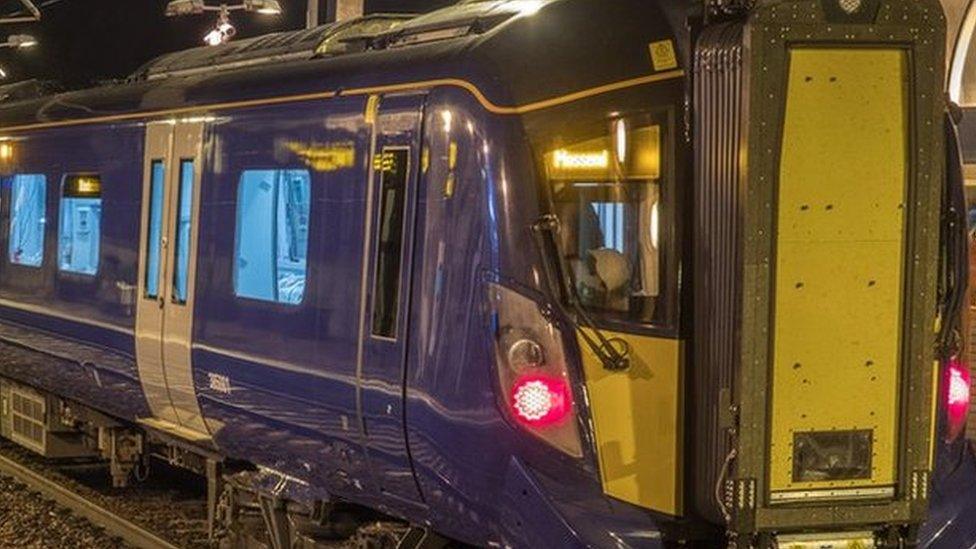Busiest trains hit by cuts to carriages
- Published
- comments
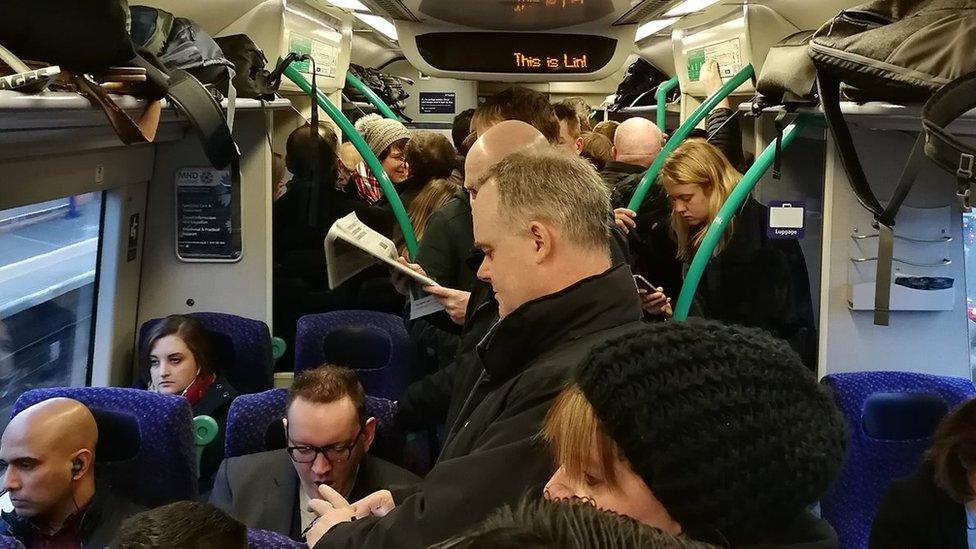
Passengers on Scotland's busiest rail route are facing further rush-hour overcrowding as ScotRail cuts the number of carriages from some trains.
Trains on the main Edinburgh-Glasgow line, via Falkirk High, will be affected by the shortage of carriages.
It has been caused by some class 170 diesel trains reaching the end of their lease period while the new electric trains have been hit by delays.
ScotRail apologised for "any inconvenience" to customers., external
On Monday morning, a problem at Linlithgow was leading to additional disruption.
ScotRail said services between Glasgow Queen Street and Edinburgh via Falkirk High would be cancelled, delayed or revised.
Allow X content?
This article contains content provided by X. We ask for your permission before anything is loaded, as they may be using cookies and other technologies. You may want to read X’s cookie policy, external and privacy policy, external before accepting. To view this content choose ‘accept and continue’.
It also offered a half-price fare on the alternative, but slower, Glasgow to Edinburgh via Airdrie service until 19 May in an attempt to get customers to lessen the strain on the main line.
The train operator expects 10 trains a day to run with fewer carriages until the new electric trains complete their testing.
Peak-hour trains, which normally operate with six carriages, will have just three or four.

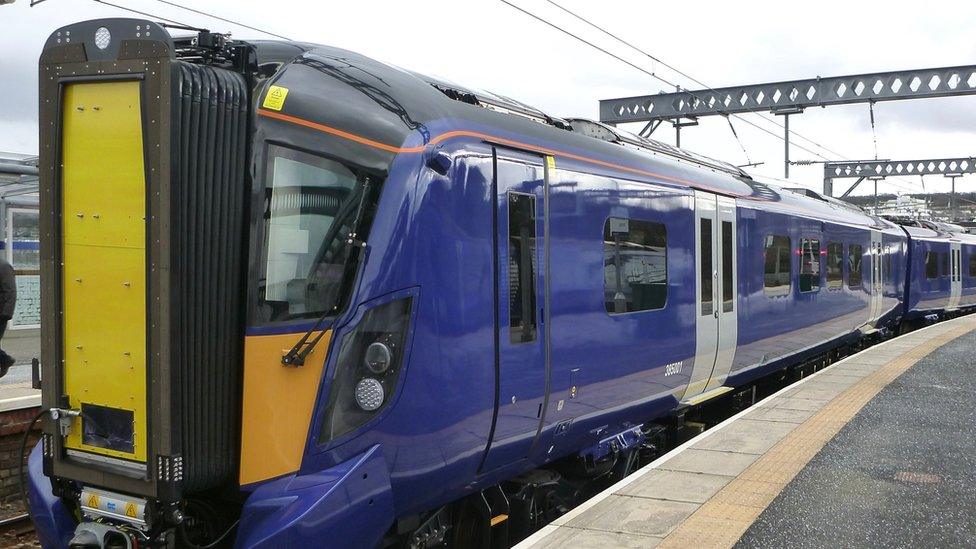
The introduction of the new Class 385 electric trains has been delayed
Which trains are affected?
Morning peak
Glasgow Queen Street to Edinburgh Waverley via Falkirk High
0600 will run will with four carriages
0745 will run with three carriages
0815 will run with four carriages
Edinburgh Waverley to Glasgow Queen Street via Falkirk High
0645 will run with three carriages
0715 will run with four carriages
0845 will run with three carriages
Evening peak
Glasgow Queen Street to Edinburgh Waverley via Falkirk High
1745 will run with three carriages
1815 will run with four carriages
Edinburgh Waverley to Glasgow Queen Street via Falkirk High
1645 will run with three carriages
1715 will run with four carriages

New electric trains
ScotRail said the problem had been caused by four of its three-carriage class 170 diesel trains coming to the end of their lease and being transferred to other UK train operators.
They were meant to have been replaced last year by the new class 385 electric trains, made by Japanese manufacturer Hitachi.
ScotRail has ordered 46 three-carriage and 24 four-carriage sets of the 385 trains to run between Glasgow and Edinburgh, as well as on suburban routes south of Glasgow and to Dunblane, Stirling and Alloa.
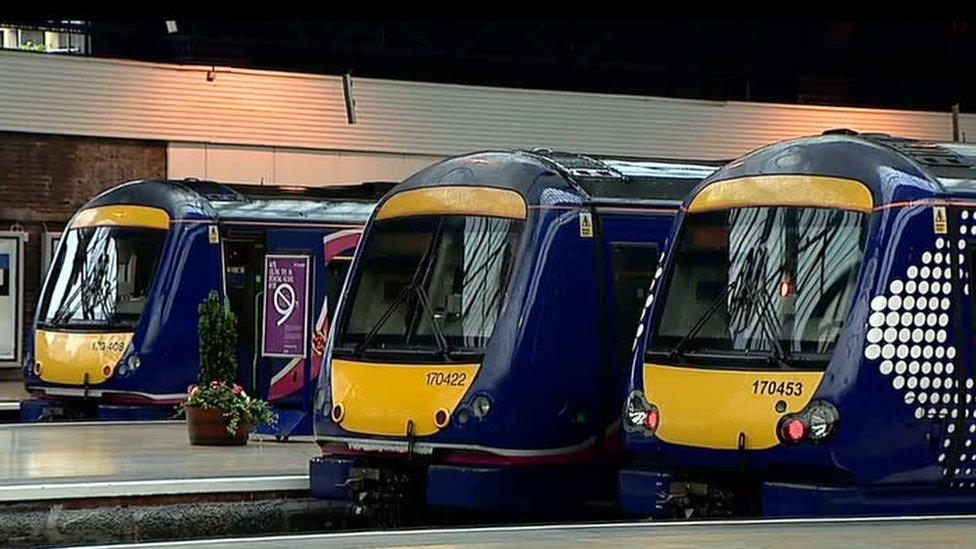
The lease on a number of Class 170 diesel trains has expired
They form part of the Edinburgh-Glasgow Improvement Programme (EGIP), which has been introducing electrification to the line.
The first of the Hitachi trains were due to have entered service in September but manufacturing hitches and delays to electrification of the line have put this back to late next month.
A ScotRail spokesman said that when the new Hitachi trains do enter service they will increase capacity on the route.
He also said some services on the main line were already run by class 380 electric trains, which operated with seven carriages at peak hours.
These will not be affected by the reduction in carriages.
The spokesman said: "As we prepare for our brand new Hitachi class 385 trains we are making some changes to our Edinburgh-Glasgow via Falkirk High service.
"This will result in a small number of services having a reduced number of seats. Customers should plan their journey in advance."

Do you travel on Scotland's busiest rail route? We would like to hear about your experiences on the main Edinburgh-Glasgow line. Please send your comments and pictures to: newsonlinescotland@bbc.co.uk, external
You can also contact us on Twitter:
Tweet: @BBCScotlandNews, external
Please read our terms & conditions

- Published26 February 2018
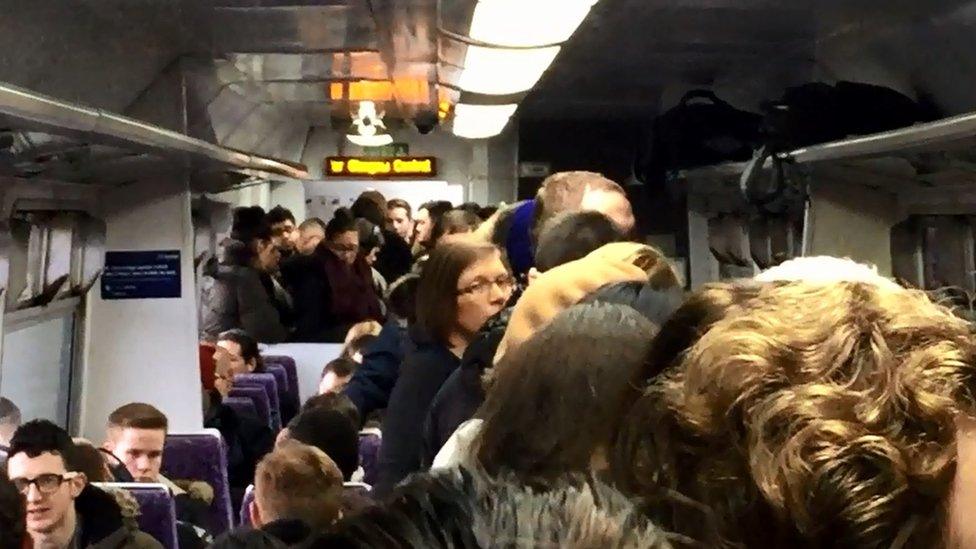
- Published12 February 2018
